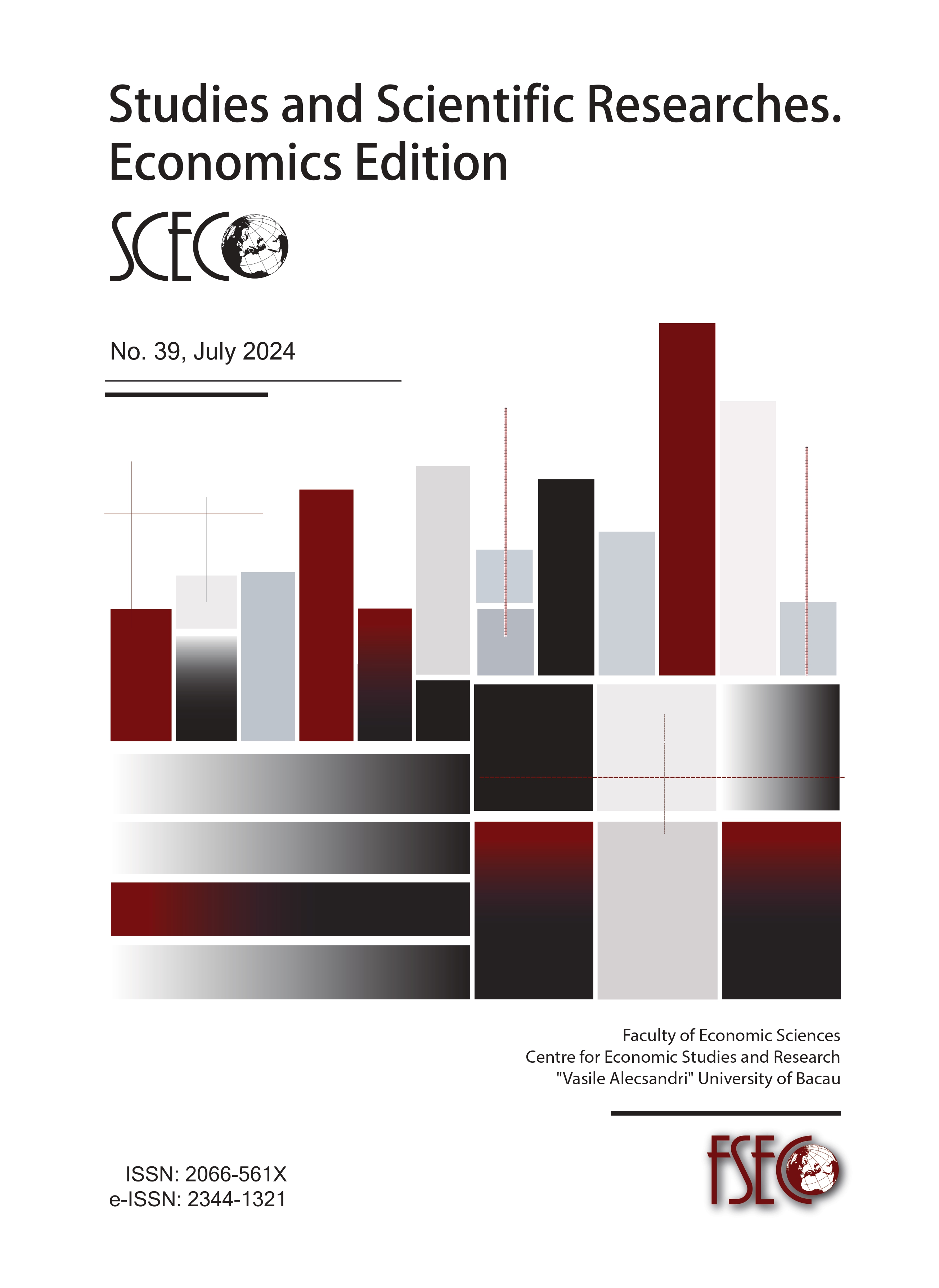The Impact of Urbanization on Energy Consumption In South Africa: An Empirical Investigation
DOI:
https://doi.org/10.29358/sceco.556Keywords:
Urbanization, Energy Consumption, South Africa, ARDL, CointegrationAbstract
The purpose of this paper is to examine the impact of urbanization on energy consumption in the case of South Africa. To empirically estimate this, the study employed the autoregressive distributed lag (ARDL) approach and annual time series data covering the period from 1983 to 2021. In this study, urbanization and energy consumption are measured through the total urban population as a share of the total population and total energy consumption per capita, respectively. The findings from the ARDL cointegration test confirm that an increase in urbanization leads to a short-run increase and a long-run decrease in energy consumption. The results further confirm that an increase in economic growth leads to a long-run and short-run increase in energy consumption. It was also found that financial development leads to a long-run increase in energy consumption, while its first lagged values lead to a short-run decline. Foreign direct investment was found to have no significant impact on energy consumption both in the long run and short run.
Downloads
References
Ali. M (2021) Urbanisation and Energy Consumption in Sub-Saharan Africa. The Electricity Journal 34(10), 1-10.
Al-mulali,U., Fereidouni,H.G., Lee, J.Y.M. and Che Sab, C.N.B (2013) Exploring the relationship between urbanization, energy consumption, and CO2 emission in MENA countries. Renewable and Sustainable Energy Reviews, 23, 107-112.
Fang, J., Gozgor, G., Mahalik, M.K., Mallick, H, and Padhan, H (2022) Does urbanization induce renewable energy consumption in emerging economies? The role of education in energy switching policies. Energy Economics, 111, 1-6.
Gracia, N.L and Young, C (2014) Housing Consumption and Urbanization. Policy Research Working Paper 7112. Available online: https://openknowledge.worldbank.org/entities/publication/fa77f4d6-66c7-5dca-9934-aee73bf16e28.
Gu, C (2019) Urbanization: Processes and driving forces. Science China Earth Sciences, 62: 1351–1360.
Lariviere, I. and Lafrance, G (1999) Modelling the electricity consumption of cities: effect of urban density. Energy Economics, 26, 49–55.
Li, K and Lin, B (2015) Impacts of urbanization and industrialization on energy consumption/CO2 emissions: Does the level of development matter?. Renewable and Sustainable Energy Reviews, 52, 1107-1122.
Liang, L., Chen, M. and Lu, D (2022) Revisiting the Relationship Between Urbanization and Economic Development in China Since the Reform and Opening-up. Chinese Geographical Science, 32, 1–15.
Nguyen, H.M and Nguyen, L.D (2017)The relationship between urbanization and economic growth: An empirical study on ASEAN countries. International Journal of Social Economics, 45(2), 316-339.
Our World in Data (2023) Primary Energy Consumption. Available online: https://ourworldindata.org/explorers/energy?tab=chart®ion=Africa&facet=none&country=~ZAF&Total+or+Breakdown=Total&Energy+or+Electricity=Primary+energy&Metric=Annual+consumption.
Poumanyvong, P. and Kaneko, S (2010) Does urbanization lead to less energy use and lower CO2 emissions? A cross-country analysis. Ecological Economics, 70(2), 434-444.
Rogerson, J.M., Kotze, N, and Rogerson, C.M (2014) Addressing South Africa’s urban challenges. Urbani izziv, 25, supplement, 2014. 1-4.
Ruhul, A. S and Shafiei, S (2014) Urbanization and renewable and non-renewable energy consumption in OECD countries: An empirical analysis. Economic Modelling, 38, 2014,581-591.
Sahoo, M and Sethi, N (2020) Impact of industrialization, urbanization, and financial development on energy consumption: Empirical evidence from India. Journal of Public Affairs,2020, 1-10.
Shao, Q., Tao, R., Luca, M.M (2022) The Effect of Urbanization on Health Care Expenditure: Evidence from China. Frontiers in Public Health, 10, 1-11.
Sheng, P., He, Y., and Guo, X (2017). The impact of urbanization on energy consumption and efficiency. Energy & Environment, 28(7), 673-686.
South African Cities Network (2021) State of South African Cities Report. Available online: https://www.sacities.net/publication/state-of-south-african-cities-report-2021/.
South African Cities Network (2021) The State of South African Cities Report. [Online] Available at: https://www.sacities.net/2022/04/22/state-of-cities-report.
Totaforti, S (2021) Urbanization and housing development in South Africa. African Journal of Science, Technology, Innovation and Development, 13(6), 769-777.
United Nations Conference on Trade and Development, (2022). Total and urban population. Available online. https://hbs.unctad.org/total-and-urban-population/.
United Nations Conference on Trade and Development. (2022). [Data File]. [Online] Available at: https://unctadstat.unctad.org/.
Wang, Q., Jian, L ., Zhou, K., Jie, F and Mei-Po, K (2020) Does urbanization lead to less residential energy consumption? A comparative study of 136 countries. Energy, 202. 1-3.
Warsame, A.A (2022) The Impact of Urbanization on Energy Demand: An Empirical Evidence from Somalia. International Journal of Energy Economics and Policy, 2022, 12(1), 383-389.
World Bank, (2023). World Bank Indicators. [Data File]. [Online] Available at: http://www.worldbank.org/indicator.
Yang, Y., Liu, J., Qiongyuan, L., (2019) The impact of urbanization on China’s residential energy consumption. Structural Change and Economic Dynamics, 49, 170-182.
Zhang, C and Lin, Y (2012) Panel estimation for urbanization, energy consumption and CO2 emissions: A regional analysis in China. Energy Policy, 49, 488-498.
Downloads
Published
Issue
Section
License
Copyright (c) 2024 Nomfundo Portia Vacu-Ngqila, Nicholas Mbaya Odhiambo

This work is licensed under a Creative Commons Attribution 4.0 International License.
Authors who publish with Studies and Scientific Researches. Economics Edition (SCECO) agree to the following terms:
-
Copyright Retention
Authors retain full copyright over their work and grant the journal the right of first publication. The published article is simultaneously licensed under the Creative Commons Attribution 4.0 International License (CC BY 4.0). This license permits others to:-
Share — copy and redistribute the material in any medium or format
-
Adapt — remix, transform, and build upon the material
for any purpose, even commercially, as long as proper attribution is given to the original author(s) and source.
-
-
Additional Distribution
Authors may enter into separate, non-exclusive contractual arrangements for the distribution of the journal’s published version of the work (e.g., post it to an institutional repository, include it in a book), with clear credit to the initial publication in SCECO. -
Preprint and Open Posting Policy
Authors are encouraged to post their work online (e.g., in preprint archives, institutional repositories, or personal websites) before submission, during review, and after publication.
This practice supports academic exchange and can lead to earlier and broader dissemination and citation of published work.
(See: “The Effect of Open Access” – PLOS)
For further inquiries regarding copyright, licensing, or archiving, please contact the editorial office at Editorial Board








